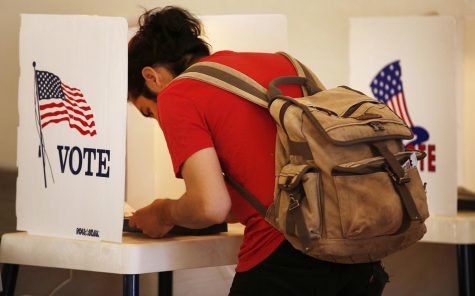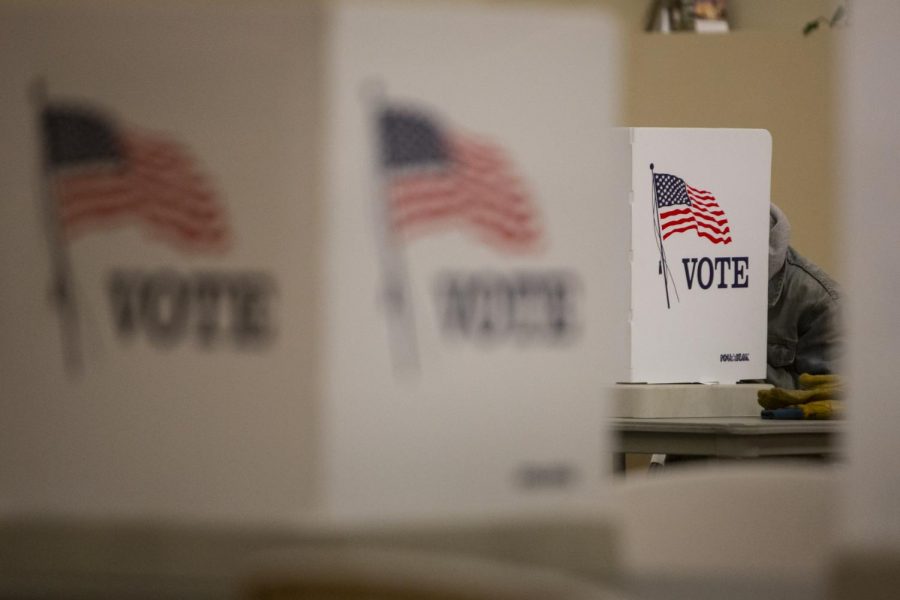Don’t Get Caught Between a Rock and a Hard Place
The two-party system and first-past-the-post ballots form a vicious cycle that transcends democracy and lessen’s voters’ impact.
PHOTO | (Al Seib, Los Angeles Times, MCT Campus)
In-person voting is still an option despite COVID-19.
Intense polarization of political parties is nothing new. The American two-party system first emerged in 1796, with the rivalry between the Democratic-Republican and Federalist parties. These steep divides have plunged recently, though; extreme voter reliance on social media for news has made bipartisanship and independence nearly impossible. The two party system and its voting method causes societal rifts that are becoming too deep to repair.

The volume of independent voters has dramatically decreased over the last 10 years, according to the Pew Research Center. Registered Republicans and Democrats are becoming more prevalent as political polarization intensifies. This “pick-a-side” mentality is heavily instigated by first-past-the-post voting, in which voters chose a single candidate to favor. Using this method, voters are discouraged from voting for third parties, as it is widely known that it will take away votes from their second choice.
First-past-the-post voting, the method in which voters select a single candidate from the ballot, is widely used in all states except for Maine, according to Fair Vote. This method is not only discouraging to independent voters, but essentially undemocratic. It allows for extremely close elections where the elected candidate may not have even won the popular vote, which is true in the case of Presidents John Quincy Adams, Rutherford B. Hayes, Benjamin Harrison, George W. Bush and, in recent years, Donald Trump, according to Time Magazine.
Ranked-choice voting (RCV) offers a solution to this problem. This method allows voters to rank candidates in order from most favored to least, according to Ballotpedia.org. In doing this, voters are more comfortable in a third party vote, and the two-party system becomes less prominent in voter’s ultimate decision. RCV is implemented in several states, including California, Colorado and Florida, but only Maine has adopted it as their main method of voting in all elections.
RCV and other alternative voting methods, like the two-round, or runoff system have the potential to greatly increase American’s impact on elections. First-pass-the-post voting has forced voters into a box, essentially narrowing the options down to the Democrat or Republican candidates. In order for all voices to be honestly heard, the American voting system must consider change.



